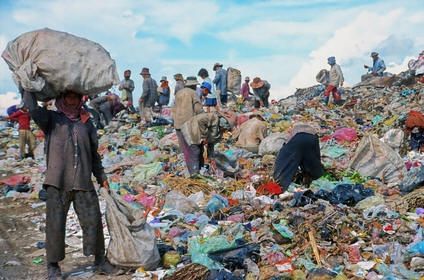Start / Socialization
SOCIALIZATION
 What is defined in this article is only intended to be an
approximation and principles of how we should organize society in
the fields of business, economy and property, which obviously must
be expanded and many other aspects specified.
We are also aware that we are not going to expose anything new, but
we are aware that it is intended to hide or undifferentiated how a
society should be.
What is defined in this article is only intended to be an
approximation and principles of how we should organize society in
the fields of business, economy and property, which obviously must
be expanded and many other aspects specified.
We are also aware that we are not going to expose anything new, but
we are aware that it is intended to hide or undifferentiated how a
society should be.
After reading this article you will see that it is simple and easy to make the changes that society needs to eliminate all the current abuses and injustices that we mention on this website, as long as there is a will on the part of all the sectors involved, in fact, it is done It is difficult to understand how it has not already been done, and it is clear that the enriched sector does not want to stop being the rich and powerful, and to stop subjecting the population to its will and interests, putting up all kinds of obstacles so that they do not carry out changes to get it.
For the realization of a fair and balanced society where the elimination of all existing abuses in capitalist or market economy societies is guaranteed, it is necessary to make changes in the three basic areas of society, such as:
- IN THE PRODUCTIVE AND COMMERCIAL ORGANIZATION,
- IN THE ECONOMY, AND
- ON THE PROPERTY.
SOCIALIZATION - PRODUCTIVE AND COMMERCIAL ORGANIZATION
In the productive and commercial organization, it is necessary to carry out a process of nationalization of the companies where these could only take three different modalities, which would be:
- Family or individual businesses.
- Companies where all were partners, and
- State companies where all are workers.
Family or individual busineses.- would be made up of families or single individuals, as are today the companies of farmers, small businesses and the self-employed, not having employees in their charge who are not from their own family.
 This type of company would
not differ much from how they are today and they would keep their property that
would be salable and transferable to their heirs and they would pay the
established taxes.
This type of company would
not differ much from how they are today and they would keep their property that
would be salable and transferable to their heirs and they would pay the
established taxes.
The administration in this type of companies would have certain control over them, guaranteeing that their productivity was viable and necessary, and in the event of sale or transfer, their continuity would be guaranteed. The administration would also control the benefits of the company to ensure that they have a minimum income, that is, the administration would have a certain control but would not interfere unless necessary.
Each company would have a free accounting and financial adviser designated by the administration who, as necessary, would go through the company and be in charge of:
- Keep the accounting of the company.
- Make the declarations of the Treasury.
- And all those procedures that relate the company with the administration.
This would mean considerable savings for the company by not having to pay accounting or advice and protection by the administration. Situations that may arise would be agreed between the administration and the employer, always looking for the best solution and in accordance with the provisions of the Law.
The Societies.- would be made up of workers where each occupying the different positions, they would all be partners. These companies would be those that today are called small and medium-sized companies, self-employed with workers and up to a maximum of workers that could be 10 or 20 workers, from the established number they would still be State companies.
Ownership of the business could be maintained by the entrepreneur and it could be salable or transferable, but not to outside capital. The administration would legislate each situation that could arise, always looking for the solution that harms the least. The employer would be the employer-manager, all paid according to the professional position they hold and all would be knowledgeable about the company's accounting. Periodically in assemblies they would define their continuity and the salaries corresponding to each professional category, which could be adapted according to the performance of the company and the benefits obtained and respecting the corresponding current legislation.
 Obviously, the
employer would have to value himself mainly for being the initiator and
organizer of the company. The valuation of the different jobs would be
negotiated in principle with the current employers and workers and the
administration would establish by law a minimum for each professional category.
Company maintenance expenses would be covered.
Obviously, the
employer would have to value himself mainly for being the initiator and
organizer of the company. The valuation of the different jobs would be
negotiated in principle with the current employers and workers and the
administration would establish by law a minimum for each professional category.
Company maintenance expenses would be covered.
Those who joined the company would go through a trial and adaptation period, after which they would become partners of the company.
As in family and individual businesses, each of these companies would have an accounting and financial advisor appointed by the administration who, free of charge and regularly, would visit the company and be in charge of:
- Keep the accounting of the company.
- Make the declarations of the Treasury.
- Hire and drop new workers.
- And all those procedures that relate the company with the administration.
This would also mean significant savings for the company and protection by the administration.
Temporary job companies would be created to cover occasional jobs such as picking fruits and vegetables at the right time, prioritizing that the positions be filled by local and immigrant workers.
The State companies.- would be the large ones based on a number of workers and all of them would be State employees.
.jpg) The
nationalization would be done by first recovering the parts of the capital
invested from abroad and the national owner each case would be studied in
particular, buying their part or reaching an agreement, paying them with the
money that would be contributed in the manner described in SOCIALIZATION-ECONOMY
and taxes.
The
nationalization would be done by first recovering the parts of the capital
invested from abroad and the national owner each case would be studied in
particular, buying their part or reaching an agreement, paying them with the
money that would be contributed in the manner described in SOCIALIZATION-ECONOMY
and taxes.
The current entrepreneurs of these companies have to replace their enrichment derived from the performance of the company, for a higher salary that would be established by law or a percentage of the profits, renouncing the ambition of exaggerated enrichment (because it is of no use to them to have millions and millions, more than for increase the capital in new Investments), and also of its privileged power in favor of the majority of the population, so that it stops suffering the consequences described on this website.
As in partner companies, the salaries corresponding to each professional category would be adapted according to the performance of the company and the benefits obtained, thus preserving the incentive that the more and better you work, the more you earn and respecting current legislation.
The engine of productivity should not be the exorbitant enrichment of a minority sector of the population, but the coverage of the needs of the population. This is why they should be called upon for a sense of coexistence and empathy in favor of the population.
.......................
In companies, an abandonment of productive obligations in workers can occur that can lead to lower productivity, because the private employer exercises greater control and demands on the worker (sometimes illegal), these demands and control must be carried out. carried out by an administration department and ensure that productivity is accurate and of quality. In companies where lower productivity is seen, a file would be opened and control over it would be increased, sanctioning if necessary those who caused this lack of responsibility.
Given the possibility that politicians could keep State money, all politicians, businessmen-managers and the entire population must make public their property and money holdings, including their origin, both inside and outside the country. regularly, not admitting the use of front men, in which case they will be harshly sanctioned. The use of so-called tax havens will also not be allowed.
The organization in general of the companies would be in charge of the administration, this would become the protector of each company, guaranteeing its continuity and suppressing the private property of the same that are not family or society, eliminating all unnecessary companies and jobs and providing the necessary means for the creation of new companies, and would be responsible for providing a workplace for each worker, eliminating unemployment. Private initiative would be helped and protected by the administration by making appropriate agreements.
Local and regional companies would be regulated by the regional administration, national ones by the regional administration where the company headquarters are located, and international ones based abroad that could not be nationalized, an agreement would be established. with them in order that the conditions of the workers were similar to the national ones and that there are no incompatibilities in the production.
Companies of national origin where foreign capital has been invested would recover by buying the parts owned by foreigners progressively and to the extent that the annual contribution of economic value to the system makes it possible. The companies could in no case be sold to foreign capital.
In the economy, it must be adapted to this organization of productive property. The administration would control the entire business economy and each company in particular, keeping an exhaustive control over its production and yields, so that neither managers nor workers would be deceived.
 The administration would contribute the
money that the system as a whole needed for its operation. This capital
contribution to the system would be made based on the real needs of the social
group, such as population growth, inflation or the growth of companies and
production.
The administration would contribute the
money that the system as a whole needed for its operation. This capital
contribution to the system would be made based on the real needs of the social
group, such as population growth, inflation or the growth of companies and
production.
How would the administration contribute the money? Currently, the loss of purchasing power due to inflation is not compensated by contributing more money. The Government through a general Law that authorizes it, would contribute the economic value to the system to compensate said inflation, (but also for demographic and business growth), and that would increase the General State Budgets. The amount to contribute each year would be approved by the Congress of Deputies.
The criteria to establish the amount of money that would be contributed each year would be established by law, either by the Government and/or internationally by international organizations such as the European Union or the International Monetary Fund. This contribution should not influence inflation, which would be controlled by limiting the prices of domestic and imported products, including the prices of intermediaries that interfere from production to marketing.
One way to maintain inflation would be to establish by law that it does not exceed a certain value (3%), and if any product is forced to exceed this maximum, the administration must be informed and if it sees that said increase is justified, it would be the administration would be responsible for the difference between the established maximum and the one that needed to be increased.
The need to contribute money to the system cannot come from bank loans or from individuals, nor from the contribution due to the massive influx of tourists or the sales of companies and goods to foreign capital, nor the issuance of Public Debt Securities, that the power that large fortunes or banks have today must become the power of the State.
Obtaining foreign currency to offset the trade deficit abroad must come from the quality of product production and export, and as now from the increased influx of tourists.
Tax Havens are capital extraction, laundering and tax evasion, therefore any relationship with these sites should be prohibited.
The prices of agricultural production would not be undervalued by commercial intermediaries or by the purchase of imported products, these would be adapted to national prices and always prioritizing the sale of national products. For this to be effective, it is necessary to keep track of all the intermediaries, their profits and make a fair distribution.
SOCIALIZATION – OWNERSHIP
 In the property, it would
be necessary to differentiate between Productive
Property and Personal Property. Productive property is that used
as a means of production (companies, fields, offices, etc...), personal property
is that used in the family environment (home, apartment, vehicle, etc...).
In the property, it would
be necessary to differentiate between Productive
Property and Personal Property. Productive property is that used
as a means of production (companies, fields, offices, etc...), personal property
is that used in the family environment (home, apartment, vehicle, etc...).
The Productive Property.- and as we have defined previously, could be private or of the State. In the case of being private, it could be inherited, sold or transferred as long as its purpose was to continue contributing its productivity. The ownership of state companies could not be privatized unless they were to form part of the other modalities (individual, family or partner).
Personal Property.- would be that of family or individual use for particular and private use, where an essential minimum would be established (housing, vehicle...) and highlighting the citizens who deserved it the most, according to their professional activity and personal merits established by law. Large estates would originally keep the property as long as it was not needed to cover social deficits and would also keep the right to inheritance.
A guaranteed minimum would be established in general and to obtain this minimum those owned by foreign investors would be acquired first and then, if necessary, those of large national owners, distributing said expropriation among the richest and harming the least possible.
CONCLUSIONS
A productive society cannot exist without being organized; it is necessary that everyone has their needs covered without exemption and that life stops depending on what an individual wants to give you. This is an unacceptable abuse of power that we must eliminate.
With this socialization you get:
- That all workers work either in their own company, in a company or owned by all (of the State), therefore, they stop working in someone else's company or for another, thus eliminating the humiliating slave subordination that is the exploitation of man by man.
- The current job applicants would be distributed in the different companies, so unemployment, overtime, precarious jobs, poverty, energy poverty, soup kitchens, food banks, hunger queues disappear.
- If this organization is carried out at an international level, the current great drama of emigration will disappear.
- Since a minimum habitat is guaranteed in personal property, homeless citizens, mortgages, evictions for non-payment disappear.
- When the administration contributes money to the system, the distressing indebtedness of the population, the administration and the companies also disappears, leaving these insured by the administration and recovering those that have been sold to foreign capital.
 Obviously, these social changes would be desirable if they were
at an international level.
Obviously, these social changes would be desirable if they were
at an international level.
Why is this social organization not done? It's pretty simple, isn't it? If we want all situations of social injustice to disappear, we must organize the world of work from the administration and make this economy.
Where to start? The first is to create a non-profit group or organization that would be in charge of preparing the writings and documents that would be presented to the different public and private, business and citizen institutions, explaining in as much detail as possible the intention to carry out these changes social, showing them that they are viable and inviting them to participate in their development for greater conformity of the parties in each social group.
At the administrative level, the necessary departments would be created that would be responsible for organizing the productive and commercial life of the country. Companies would be cataloged according to their activity and the number of workers who employ them and then classify them as individual, family, associated or state and legislate the organizational criteria for each one. Likewise, an administrative department would study and set the prices of national and foreign products so that they are perfectly established in the different stages of production and marketing.
This new organization of the productive society should not cause any deficiency in either the productivity or the marketing of the products, on the contrary, the quality of the products and commercial effectiveness must be increased, which is why it must be carried out over time. and precision required.
Nor do the religious bearers of the word of God pronounce on how society
should be organized, as if living in poverty or in conditions of
exploitation were not in their interest or for the Almighty, limiting
themselves to generalities that define nothing.